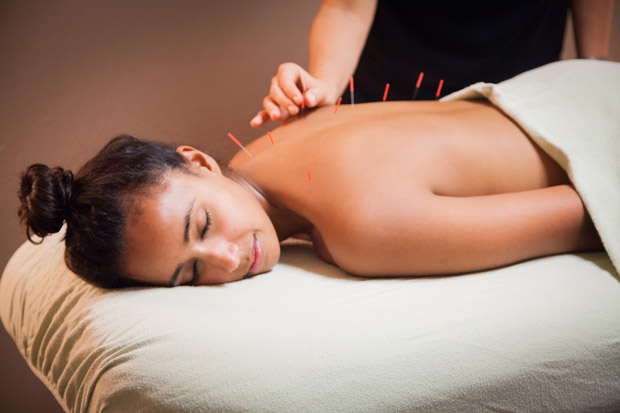
Acupuncture is considered a safe medical treatment. For this reason, many physicians and practitioners believe that acupuncture is a beneficial treatment as an adjunct to other medical treatments, and/or as an alternative to medical treatments. In certain situations, acupuncture may be used in combination with conventional painkillers, or to replace them altogether.
In 1998, the National Institutes of Health (NIH) released a statement that said there is enough evidence to demonstrate that acupuncture had beneficial pain-relieving qualities in adults experiencing postoperative dental pain, as well as nausea from chemotherapy. The NIH also found that acupuncture might be useful as a treatment for low back pain, as well as many other conditions, such as headache, myofascial pain, osteoarthritis, and carpal tunnel syndrome.
In China and other countries in the orient, acupuncture is sometimes used in many other ways, such as in some surgical cases including the brain, abdominal and other surgeries. Sometimes part acupuncture and part anesthetics may be used for surgery.
However, as with any treatment option acupuncture is not without its risks and costs. One should be well aware of the factors involved in acupuncture before making any sort of decision as to whether or not it is a possible treatment option.
Here are some guidelines regarding acupuncture:
- Get a referral from a health care practitioner or a reputable source. Many physicians understand the theories behind acupuncture and may refer their patients to a licensed acupuncture practitioner upon request.
- Research the acupuncture practitioner's background and qualifications. Just as one would do with any health care practitioner, it is important to research the background and qualifications of an acupuncture practitioner. Generally, in the U.S., a Medical Doctor (MD), Doctor of Osteopathic Medicine (DO), Doctor of Chiropractic (DC), or Physical Therapist (PT) may be able to obtain a license to perform acupuncture. In certain areas, other health professionals (such as registered nurses) may also qualify to be licensed acupuncture practitioners. In the US, each state has different requirements to be allowed to practice acupuncture. Some states require a degree in acupuncture and passing a Board examination, and other states have much less stringent requirements.
- Consider costs and benefits. It is advisable to ask about the success rates of acupuncture and the probability of achieving desired levels of pain relief. It should be a red flag to anyone if the acupuncture practitioner is unfamiliar with the patient's specific condition, or if the acupuncture practitioner's expectations for a successful outcome are low.
An acupuncture treatment program will typically include anywhere from 3 to 10 sessions, each lasting approximately one hour. Each session typically costs in the range of $45 to $100, depending on the practitioner and the local market conditions. Though not very common, acupuncture is sometimes covered by medical insurance. Discuss with the acupuncturist and insurance company the costs involved before beginning treatment.
As with any medical treatment, there are certain contraindications for acupuncture treatments, including:
- Drug or alcohol intoxication
- Use of a pacemaker
- A seizure disorders
- A bleeding disorder such as hemophilia or use of blood thinners
- Infections of skin disorder or disease
- If pregnant, needling in the abdominal area or lumbosacral region should be avoided. It is also advisable to avoid any acupuncture that might stimulate the early delivery of the fetus or even lead to abortion. Not all these points are located in the abdominal area or lumbosacral region.
There have been numerous accounts of the beneficial qualities of acupuncture for back pain. Furthermore, there have been several studies that validate similar findings. However, in the US acupuncture is still considered an area of uncertainty.
Compared to other treatments, acupuncture is quite safe. Whether acupuncture is a viable option is ultimately up to the patient and their health care practitioner.
Precision Pain Care and Rehabilitation has two convenient locations in Richmond Hill – Queens and New Hyde Park – Long Island. Call the Richmond Hill office at (718) 215-1888, or (516) 419-4480 for Long Island office, to arrange an appointment with our Interventional Pain Management Specialist, Dr. Jeffrey Chacko.















